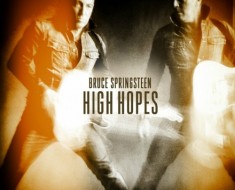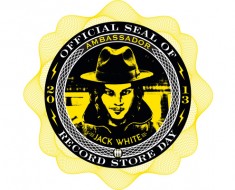You know what? “I’m So Bored With The U.S.A.,” so I think we’ll spend this Throwback Thursday overseas with The Clash! Hailing from London in 1976, The Clash consisted of Joe Strummer (lead vocals, rhythm guitar) Mick Jones (vocals, lead guitar) Paul Simonon (vocals, bass) and Nicky “Topper” Headon (drums). The Clash are legendary for their unique genre-mixing musical style, often incorporating aspects of punk, reggae, ska, rockabilly, funk, and even rap into their catchy tunes. Along with all of these genres, they manage to wow with their passionate performances that rile up audience members with calls to action and their politically-charged lyrics.
The Clash’s self-titled first album was made in just three weekends and released in April of 1977. It included the instant-classics “White Riot,” “I’m So Bored With the U.S.A.” and “London’s Burning,” along with a stunning cover of Junior Murvin’s reggae classic “Police & Thieves,” which further helped combine reggae and punk genres. Although not initially released by the bands label, Epic Records, (who considered it “too crude,”) it earned it’s rightful place as a legendary album and one of the best-selling imports of all time simply through word of mouth and favorable press. Throughout the remainder of 1977 and 1978, they released a number of non-album singles, such as “Complete Control,” “Clash City Rockers” and “(White Man) In Hammersmith Palais,” before dropping their sophomore album “Give Em’ Enough Rope,” at the end of 1978. The group released their most well-known album, “London Calling,” in December of 1979, effectively solidifying their place in rock ‘n’ roll history. After “London Calling,” they put out “Sandinista!” and appeared in a concert film, “Rude Boy,” before dropping their final album, “Combat Rock” in 1982. “Combat Rock” sent The Clash out with a bang, featuring the garage-rock classic, “Should I Stay Or Should I Go.”
By the time “Combat Rock” was released, the band was struggling with countless internal conflicts which lead to the leaving of Mick Jones after their final performance at a 1983 California rock festival. After Jones’ departure, Strummer and Simonon performed as The Clash before officially disbanding a year later. In 1999, Strummer, Jones, and Simonon reunited for a live album, “From Here To Eternity,” and a video Documentary, “Westway To The World.” In 2002, Jones and Strummer took the stage together for the first time in nearly 20 years, sparking rumors of a possible Clash reunion. Unfortunately, Joe Strummer died of a heart attack on December 22nd, 2002, crushing hope of a reconciliation.
Even without the reunion, The Clash continues to be one of the most legendary rock acts of all time, and serves as an inspiration for established and aspiring musicians alike. So keep on rockin’ the Casbah, The Clash are here to stay!







